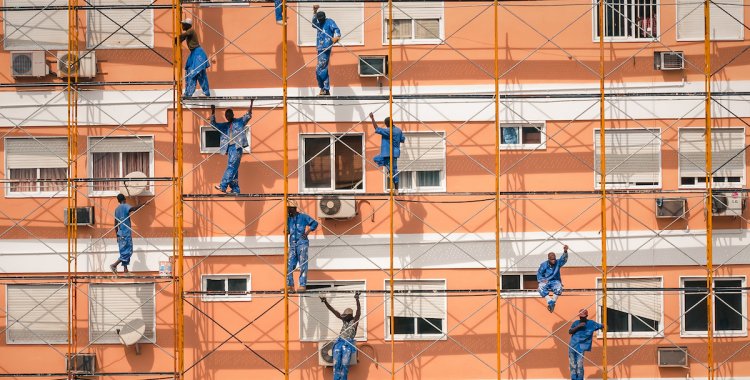According to the spokesperson for the trade unions, Teixeira Cândido, the fact that there are no responses to the demands and proposals, as well as the "predisposition" on the part of the Government "to find solutions", the workers will move on to the second phase of the interpolated general strike.
Teixeira Cândido, the general secretary of the Union of Angolan Journalists (SJA), recalled that negotiations between the parties have been taking place since December 28, 2023, to respond to the statement of demands presented to the President, João Lourenço, in September last year.
"We held seven meetings, a true marathon, the trade unions were flexible on all the main issues, hoping to find a solution", said Teixeira Cândido at the press conference held this Thursday.
The spokesperson for the trade unions stated that the workers' demands are not aimed at a salary increase, but rather at updating them to face the loss of purchasing power, taking as a reference the current price of the basic food basket and the United Nations understanding on extreme poverty.
"This list of demands of ours is being seen as an absurd demand, [but] we are not demanding that the State give us money to spend holidays, we are saying that the salaries that are paid today are not capable of providing for families the existential minimum, which, translated, is eating", he stressed.
According to Teixeira Cândido, the workers' demands are reasonable, minimal and acceptable, calling on the working class not to be inhibited by threats to not join the strike.
"Let us not be inhibited by the absences, by the supposed processes, fortunately the country has laws capable of protecting us from these arbitrariness, these coercions, these threats", he said, urging workers to consent to sacrifices, because "this fight is worthy".
In the list of demands, the three union centrals demand an increase in the national minimum wage, from the current 32,000 kwanzas, to 245,000 kwanzas, a "flexible" proposal, however, to 100,000 kwanzas and an adjustment to the Civil Service salary, in the order of 250 percent, and a 10 percent reduction in Labor Income Tax (IRT).
The executive decided to propose a minimum wage depending on the size of the company, namely 48,000 kwanzas for small companies, 70,000 kwanzas for medium-sized companies and 96,000 kwanzas for large companies, which was rejected by the unions.
The three union centrals – Central Geral de Sindicatos Independentes e Livres de Angola (CGSILA), a União Nacional dos Trabalhadores Angolanos - Confederação Sindical (UNTA-CS) and Força Sindical - Central Sindical (FS-CS) – also demand the updating of subsidies provided for in the social benefits system of the National Institute of National Security (INSS), as well as the shared management of INSS funds, providing "necessary transparency".
For the first time, three union federations came together to carry out an interpolated general strike, with the first phase of the strike marked by the arrests of workers who joined the strike.







